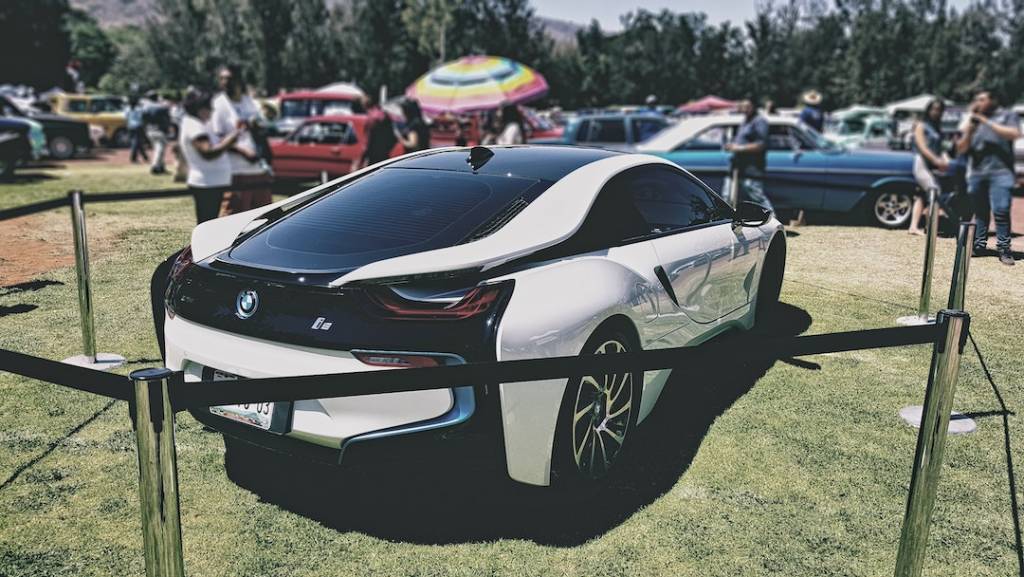Tax Implications of Investing in Cars and The Benefits of Investing in Cars
- by Jorge Gonzales
- 2023-03-14
- 1957 views
- Reading time: 6 minutes

Introduction
Investing in cars is a great way to make money. Cars are valuable assets and can be sold for much more than you paid for them, especially if they're rare or collectible models. If you know what to look for when buying a car, there are many ways to ensure that your investment will pay off in the long run.
Investing in cars is different from buying one as an everyday driver because it requires research and planning ahead of time. You need to know what kind of vehicle will hold its value over time so that when it comes time sell your investment down the road, you'll get back what you put into it (and hopefully more).
The Benefits of Investing in Cars
Investing in cars is a great way to diversify your portfolio and earn passive income. Cars can appreciate in value, but they also provide an opportunity for you to make money on the resale of the car down the line.
The best part about investing in cars is that you don't need a ton of money or experience to get started; all you need is some cash and an interest in learning how these vehicles work.
Types of Cars to Invest In
- Classic Cars: These are the most popular cars to invest in and can be found at car auctions, online classifieds and even on eBay. They are often considered "collectible" or "antique" vehicles that have been around for decades. Classic cars have high demand due to their rarity, so they're usually priced higher than other types of cars.
- Luxury Cars: These are luxury vehicles that were manufactured between 1990-2015 by companies like BMW or Mercedes Benz (for example). They include sedans like Jaguars as well as SUVs such as Range Rovers--and they're usually very expensive because they're seen as status symbols for wealthy people who want to show off their wealth through luxury items like these cars! If you're looking for something fancy but don't want something too old-fashioned sounding then this might be your best bet!
How to Buy and Sell Cars
When you're ready to buy a car, there are several things to keep in mind. First of all, you'll need to do your research. It's important that you know exactly what kind of model and year make/model you want before approaching any sellers or dealerships. This will help ensure that the seller is able to provide the exact kind of vehicle that meets your needs--and won't lead them astray by offering something different from what they were expecting.
Secondly, once you've found a reliable seller who has agreed upon terms with which both parties are comfortable (price being one such term), it's time for negotiation! While this may sound intimidating at first glance because we've been taught since childhood not negotiate prices with anyone ever unless absolutely necessary (such as buying groceries), don't worry--it's actually quite simple once you get used to it! Just remember these three basic rules:
- Don't be afraid or ashamed about negotiating; everyone does it! It's part of life now so just go ahead and do whatever works best for both parties involved without feeling guilty about trying something new here :)
- Always remember why they're selling their item(s) first before making any offers--this way no one gets upset later down the road when things don't work out quite right between each other :)
How to Maintain and Store Cars
- Regular maintenance:
- Finding the right storage solution:
- Investing in the right insurance:
How to Find the Best Deals
- Researching online. You can find a lot of information about cars on the internet, including their specs and prices.
- Attending auctions. Many people sell their cars at auctions, so you may be able to get a great deal if you're lucky enough to attend one in person or watch it online.
- Networking with other car enthusiasts. If you have friends who love cars as much as you do, ask them what they think about certain models before making your decision!
The Risks of Investing in Cars
The risks of investing in cars are high. The market is volatile, and you can easily lose money if you're not careful. There's also the risk of fraud--if someone sells you a car that turns out to be stolen, for example, there isn't much recourse for getting your money back. Finally, buying used cars means paying for repairs on top of the purchase price; if you don't have experience repairing vehicles yourself or with friends/family members who do know how to fix up cars (or if they're unavailable), then this cost could add up quickly!
Tax Implications of Investing in Cars
There are a few tax implications to consider when you invest in cars. First, if you sell your car for more than what it cost, then any profit is considered a capital gain and is therefore subject to taxes. You may also be able to deduct some depreciation on your car as an expense against other income (for example, if you use the vehicle for business purposes).
However, there are some important limitations on these deductions: firstly, only 50% of vehicle expenses can be written off; secondly, this deduction only applies up until $30000 per year (or $25000 if married filing separately); and thirdly--and most importantly--you must use the vehicle 100% exclusively for business purposes (as opposed to personal use) in order for these deductions to apply at all!
Finding the Right Car for You
The first step in any investment is to find the right car for you. If you're looking for a new ride, consider your budget and research the market before jumping into anything. When it comes to buying used cars, there are plenty of options out there--but not all of them are good ones!
You want something that has been well-maintained and cared for by its previous owners (and hopefully still has some life left in it). It should also be in good condition overall; no dents or scratches on the exterior or interior damage from wear and tear over time. If possible, get someone who knows about cars like mechanics or auto repair shops
Conclusion
The potential for investing in cars is huge, but it's also risky. If you're looking to get started with buying and selling cars, there are a few things to keep in mind. First, make sure that the car has been maintained well by its previous owners--this will help ensure that your investment holds up over time. Second, try not to buy too many cars at once; this can be tricky if you're just starting out because it takes time for them all to sell! Finally, don't forget about insurance: your policy should cover any damage done by accident or theft while your vehicle is under someone else's care (or yours).
If these tips sound like they might help when making purchases on sites like eBay Motors®, take a look at our guide below!



